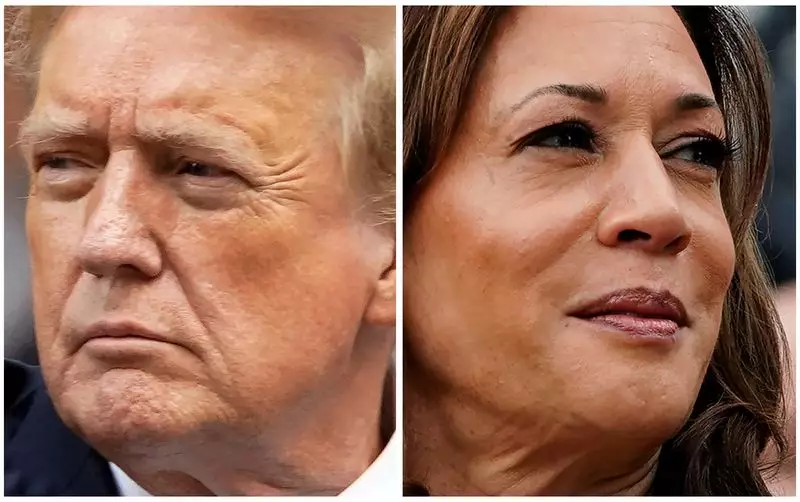The United States is currently facing a budget deficit that ranks as the third-highest in history, signaling a critical moment in fiscal policy as we approach the 2024 presidential election. According to analysts at Evercore ISI, the budget deficit has ballooned to an alarming $1.7 trillion, representing 6.3% of the country’s GDP. This unprecedented figure raises significant concerns about future fiscal health and economic stability, especially given that it is the largest deficit recorded outside of the COVID-19 pandemic scenario.
As the election draws nearer, the potential economic strategies put forth by Kamala Harris and Donald Trump reveal stark contrasts—but with surprisingly similar anticipated outcomes concerning the overall budget deficit. The analysts noted that while both candidates may have unique approaches to fiscal policy, the macroeconomic ramifications of additional budgetary measures might not significantly differ between the two. Harris is likely to champion policies aimed at expanding social programs and infrastructure, an approach that could be counterbalanced by plans to enhance tax revenues through levies on corporations and wealthy individuals.
On the other hand, Trump’s strategy seems to lean towards endorsing substantial tax cuts and bolstering defense spending, contrasting with Harris’s societal investments. However, the 1.7% increase in GDP deficit projected under Harris, compared to a 1.8% rise under Trump’s administration, signals that neither candidate’s measures will notably alleviate the mounting deficit problem.
One critical aspect that shapes these fiscal perspectives is the potential for a divided government. Should Harris assume office, she might face significant obstacles in enacting her revenue-raising policies if Republicans maintain control of the Senate. Analysts suggest that partisan challenges could hinder comprehensive reforms necessary to mitigate the deficit. This turbulent political climate may necessitate compromises that dilute the effectiveness of her proposed measures. Conversely, Trump’s consistent advocacy for tax reductions could meet pushback from fiscally conservative lawmakers who may be cautious about further increasing the deficit, thereby complicating his short-term economic gains.
The Broader Implications of Current Spending Trends
The consensus among analysts is clear: without aggressive reforms in policy, the U.S. budget deficit is set to persist at high levels, regardless of the occupant in the White House. This observation carries a considerable weight, as it underscores the urgent need for sustainable fiscal strategies capable of addressing both immediate economic challenges and long-term financial stability. The outlook becomes increasingly concerning when considering the rising national debt and its implications for future generations.
While Kamala Harris and Donald Trump may present distinct visions for U.S. fiscal policy, the expected similar impact on the overall budget deficit suggests that voters must carefully consider the broader implications of each candidate’s economic strategies before heading to the polls. The importance of forging policies that prioritize sustainable growth cannot be overstressed, highlighting a collective responsibility to seek actionable solutions that benefit not just the present, but the future as well.

